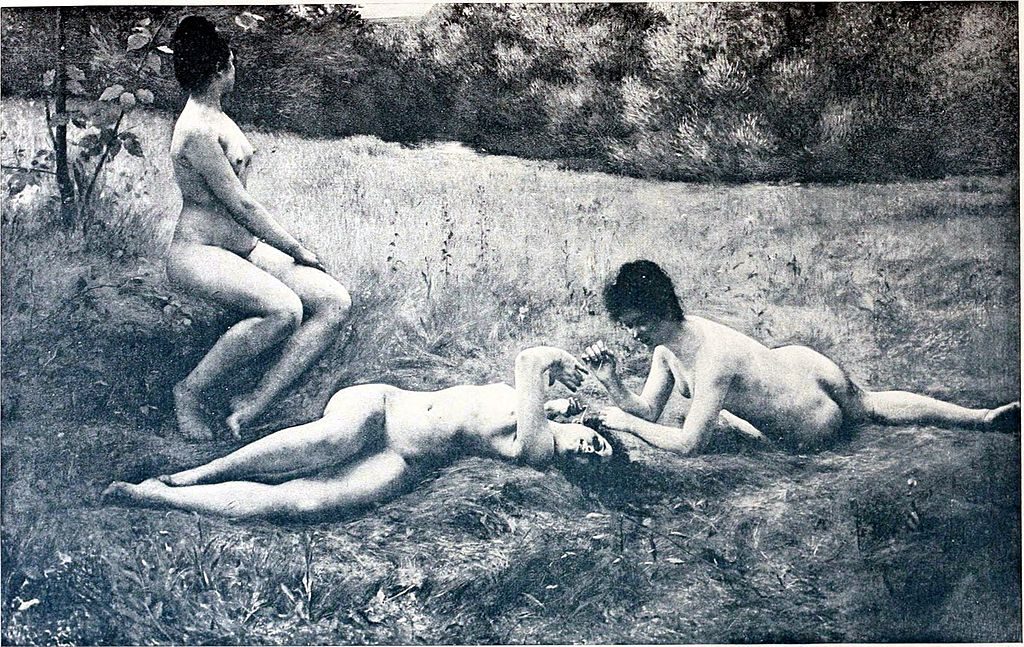In the subject line of a recent press release, we announced that the pianist “Alessio Bax summers on three continents.” A couple of journalists raised their proverbial eyebrows at the word summer stepping out so nakedly and brazenly as a verb. Is this a horrid case of “verbing”, the unseemly practice of making verbs out of nouns that Benjamin Franklin described as “awkward and abominable” in the late 18th century (and which Glossophilia discussed in an earlier post, “A-verbing we will go”)? Or are we allowed “to summer” as wistfully and prettily as Jay Gatsby did in West Egg back in the 1920s?
Glossophilia is pleased to reassure everyone that this habit of verbing our favorite sultry season — although practised less frequently nowadays, and especially rarely in England– is as long and poetic as an English midsummer’s day. The OED reminds us that people would summer as far back as the middle of the 15th century (in about 1440, to be more exact). As the Geneva Bible pronounced in 1560*, “the foule shall summer upon it, and everie beast of the field shall winter upon it.” The summer verb was seen out and about during the next five and a half centuries, with Mark Twain observing in his Man that Corrupted Hadleyburg (1900) that “a lady from Boston was summering in that village.” You might be surprised to learn that as well as meaning “to pass or spend the summer, to dwell or reside during the summer,” the seasonal verb also has a transitive definition to boot: “To keep or maintain during the summer, especially to provide summer pasture (for cattle etc.).” Why, even Shakespeare — while admittedly observing women rather than cows — was using this sense when he noted in Henry V that “Maides well Summer’d, and warme kept, are like Flyes at Bartholomew-tyde, blinde, though they haue their eyes.”
Curiously, the English sun seemed to set on the verb “to summer” some time during the 19th century, so you’re more likely to hear it used nowadays on Scottish and American shores. Furthermore, in North America it can be understood to have distinctly negative connotations — of wealth or social loftiness. As someone commented on a Lonely Planet forum several years ago, “It may be worth noting that using “summer” as a verb sounds very… snooty. I can only picture someone using it if they have a second (or third) house in the Hamptons or Cape Cod. I can’t imagine many regular people using that term.” The same commentator offered as an example a remark made by an American politician during his run for President in 2008:
“Mike Huckabee, a Republican candidate for president of the U.S., recently said: ‘For my family, summer was never a verb,” Huckabee said of his childhood. “We never summered anywhere.”It’s an implicit criticism of fellow candidate Mitt Romney’s patrician background (Romney is extremely wealthy and his father was a car company CEO and a politician). Huckabee tries to emphasize that he’s a “regular” person (albeit an evangelical minister from Arkansas). Thus, he’s mocking the type of people who would (or could) use “summer” as a verb, saying they are out of touch wth “real Americans.”
Below are more OED definitions and senses of the verb “to summer” — all of which are now confined to obscure, rare, figurative or Scottish use. But please feel free to summer at leisure in the land of your own choosing.
— To pass one’s time pleasantly. rare
1568 C. Watson tr. Polybius Hystories f. 82, “After they had ben vexed with long warres in Scicilie, & concluded a league with the Romans, they hoped to soommer and keepe holydaie.”
— fig. To give (a person) a ‘sunny’ or happy time. Obs.
— refl. or intr. To sun oneself, bask. Chiefly fig.
— intr. To consider or discuss a matter at great length; to be tediously long in discourse. Sc.
— trans. To make summer-like, summery, balmy, or genial.
* Isaiah XVIII, 6


There is no noun that cannot be ‘verbed’ and no verb that cannot be ‘nouned’.
I’ll autumn that …